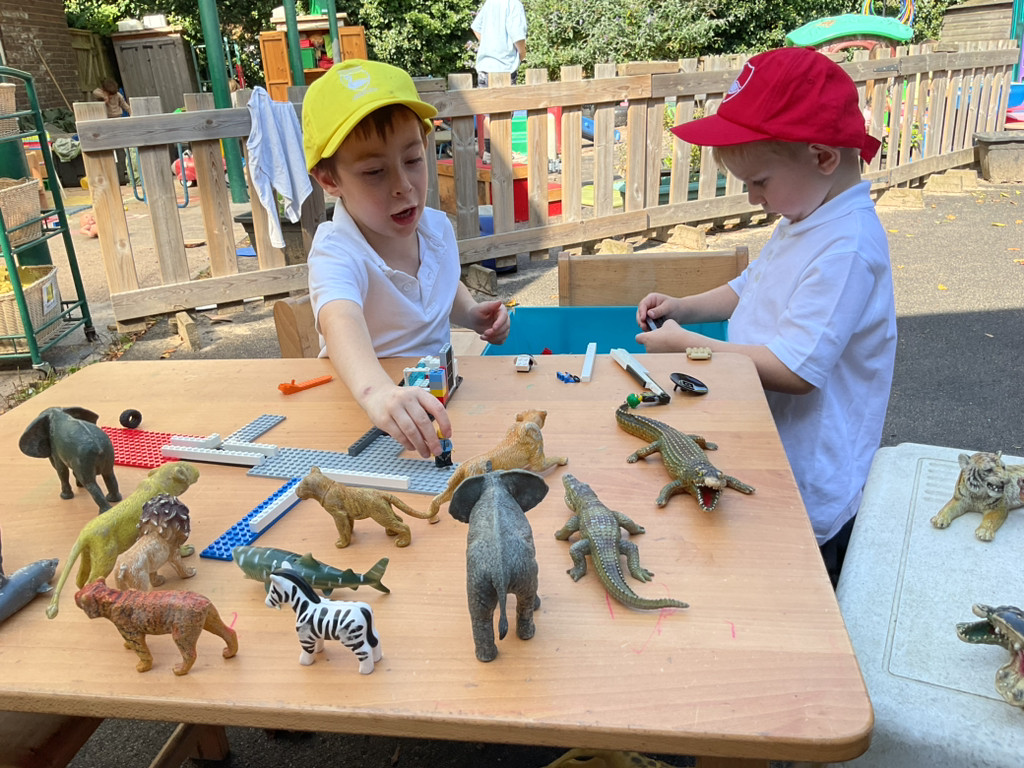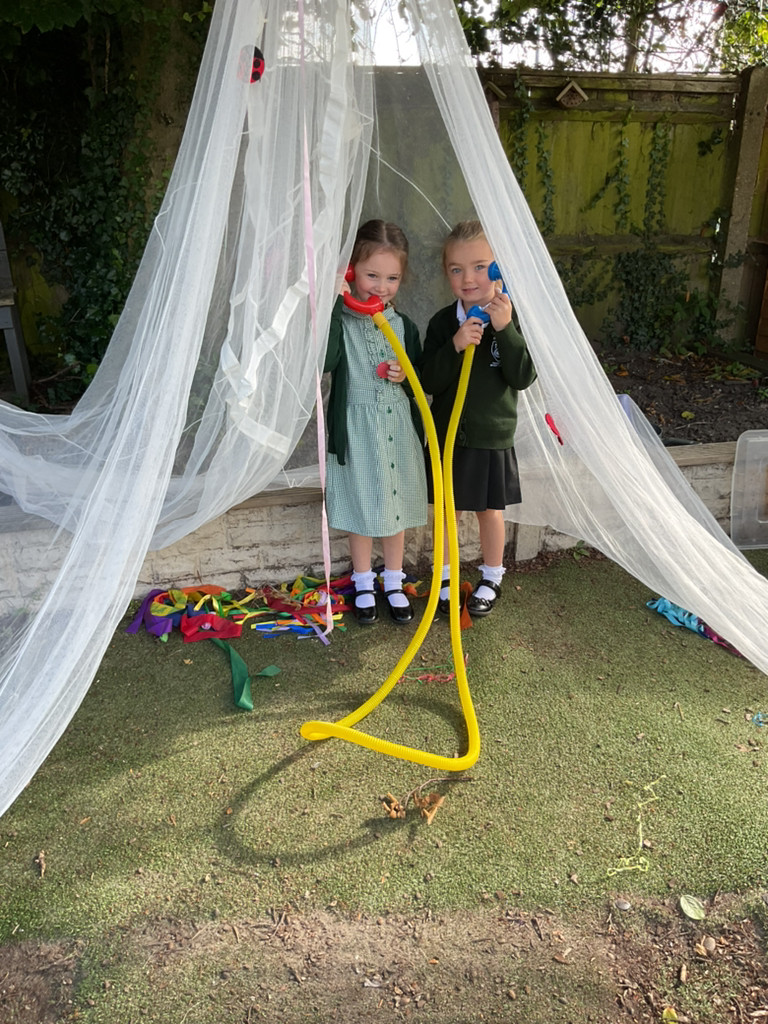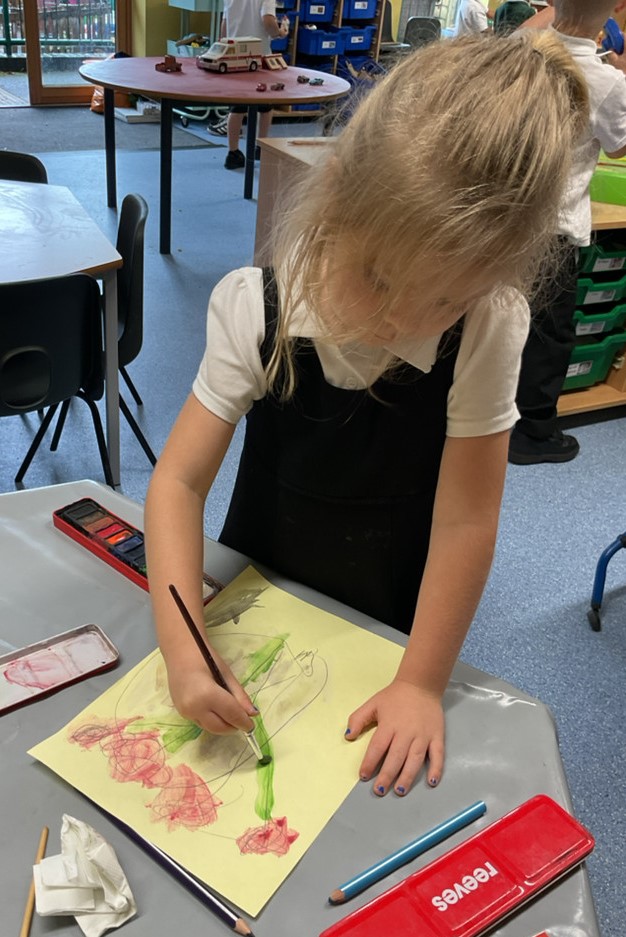Early Years Foundation Stage (EYFS)
In the Early Years at Godstone Primary and Nursery School, we aim to develop happy, resilient children with a keen exploratory approach to learning. The children learn through a range of play-based activities both inside and outside. As the children get older, we introduce more teacher-led learning through whole class and group activities.
The Early Years Foundation Stage (EYFS) at Godstone Primary and Nursery School consists of a Nursery class and a Reception class. The nursery takes children aged two to four years and the children move into Reception when they are in the academic year in which they will turn five.
Please see the nursery pages for specific information about the nursery.
Parents as Partners
We recognise that parents are the first educators and it is crucial to establish strong links with every child’s parents and carers. When your child begins at Godstone Primary and Nursery School we will meet you at your home to find out about your child and allow him/her to meet us in a setting that is familiar to them.
“Play is a child’s work.”
Play underpins all development and learning for young children. It is through play that they develop intellectually, creatively, physically, socially and emotionally. Through their play, children learn at their highest level, because they enjoy what they are doing and are in control of their learning.
The classrooms and outdoor learning environments encourage independent learning where every child is challenged. The adults work alongside the children to teach new skills, model and extend language, thinking and understanding in all areas. 
Overarching Principles of the EYFS
• every child is a unique child, who is constantly learning and can be resilient, capable, confident and self-assured.
• children learn to be strong and independent through positive relationships.
• children learn and develop well in enabling environments with teaching and support from adults, who respond to their individual interests and needs and help them to build their learning over time. Children benefit from a strong partnership between practitioners and parents and/or carers.
• children develop and learn in different ways and at different rates. The framework covers the education and care of all children in early years provision, including children with special educational needs and disabilities (SEND).
Characteristics of Effective Learning
The EYFS curriculum is based on developing a child’s ability to learn effectively. There are nine characteristics of effective learning that we are trying to encourage in every child.
These come under three main headings:
- Playing and exploring – children investigate and experience things, and 'have a go'
- Active learning – children concentrate and keep on trying if they encounter difficulties and enjoy achievements
- Creating and thinking critically – children have and develop their own ideas, make links between ideas, and develop strategies for doing things
Areas of Learning and Development
 There are seven areas of learning within the EYFS. There are three prime areas and four specific areas. No one area is taught in isolation and the prime areas feed into all the specific areas. The Prime Areas are: Communication and Language; Personal, Social and Emotional Development; and Physical Development. The Specific Areas are: Literacy; Mathematics; Understanding the World; Expressive Arts and Design.
There are seven areas of learning within the EYFS. There are three prime areas and four specific areas. No one area is taught in isolation and the prime areas feed into all the specific areas. The Prime Areas are: Communication and Language; Personal, Social and Emotional Development; and Physical Development. The Specific Areas are: Literacy; Mathematics; Understanding the World; Expressive Arts and Design.
All areas of learning and development are connected to one another and are equally important. The children’s play will cover many of these areas at one time and teacher directed lessons rarely cover only one area, developing a holistic approach to learning.
The Importance of Language
Research shows that children who have a broad understanding and use of language do better in the early years and throughout primary school. We understand the importance of teaching the children a rich vocabulary and the correct sentence structures to use when talking. We also teach the important skills of listening and understanding language. If you would like to find out how you can support your child’s language development please read the guide attached below.
Early Maths
There are many skills children need to have mastered before they are able to count accurately, add, subtract and describe shapes. We develop all these skills through play activities and teacher-directed sessions with the children in our nursery and reception classes. We love to sing and number songs are a great way to learn important mathematical concepts.
Tapestry
We use an online learning journal called Tapestry to capture all the wonderful ‘wow’ moments that happen every day as the children grow and learn. Photographs and comments are uploaded onto Tapestry at school and parents can log on at home to view the observation. Each week parents receive a weekly update with photos to show what the children have been learning about and how parents can support at home. Parents may also upload their own observations and share with us some of the exciting learning that is taking place at home. This fantastic resource gives us a more complete view of the whole child whilst sharing some of the things that happen at school with parents at home.
